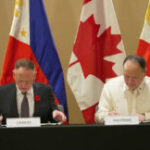Jobson Iwalefoh, Director General of the Infrastructure Concession Regulatory Commission (ICRC), says Nigeria’s removal from the Financial Action Task Force (FATF) gray list is an important milestone that strengthens the country’s financial credibility and supports rapid infrastructure investment.
In a statement issued in Abuja by Ifeanyi Nwoko, Acting Head of Media and Publicity at the ICRC, Iwalefoh said the development positions Nigeria as one of Africa's attractive destinations for investment.
He explained that FATF's gray list identifies countries that have weak anti-money laundering and financial transparency systems. Nigeria's exit reflects new global confidence in better financial governance, lower investment risks and the country's commitment to international standards, he said.
Iwalefoh commended the Nigerian Financial Intelligence Unit, the Central Bank of Nigeria, the Securities and Exchange Commission and the Ministries of Finance and Justice for their joint efforts, saying the delisting “underscores the stability and reforms being pursued under President Bola Tinubu.”
According to the ICRC chief, the delisting is expected to attract more private capital into Nigeria's infrastructure sector, especially through public-private partnerships (PPPs) aimed at addressing the country's $2.3 trillion infrastructure financing gap.
“Nigeria now has a clean financial risk profile. This means lower risk premiums, easier cross-border transactions and stronger investor confidence,” he said. “At the ICRC, this supports our goal of mobilizing private financing to close the infrastructure gap.”
He said a sustained annual investment of about $100 billion is needed through 2043 to address the projected deficit of more than $2.3 trillion. He said the renewed investor confidence following FATF delisting will help drive this effort through well-structured PPPs and private sector-led models.
“The FATF milestone will attract institutional investors and global financiers looking for credible and transparent investment opportunities in Nigeria’s infrastructure sector,” Iwalefoh said.
He also highlighted the ongoing reforms under the Tinubu administration, noting that he has reestablished the ICRC for greater efficiency.
Also read: Assessment of CBN's role in Nigeria's exit from FATF gray list
“Under this leadership, the ICRC has streamlined PPP processes, increased the approval threshold for ministries, departments and agencies to ₦20 billion and ₦10 billion to fast-track small projects, and issued a regulatory framework with clear guidelines from project concept to completion,” he said.
Iwalefoh urged local and international investors to take advantage of the enabling environment to partner with the government in infrastructure development in transport, power, water, health care and technology.
“Nigeria is open for business,” he said. “With FATF delisting and our strong PPP framework, conditions are right for a new wave of infrastructure investment that will reshape the economy.”











